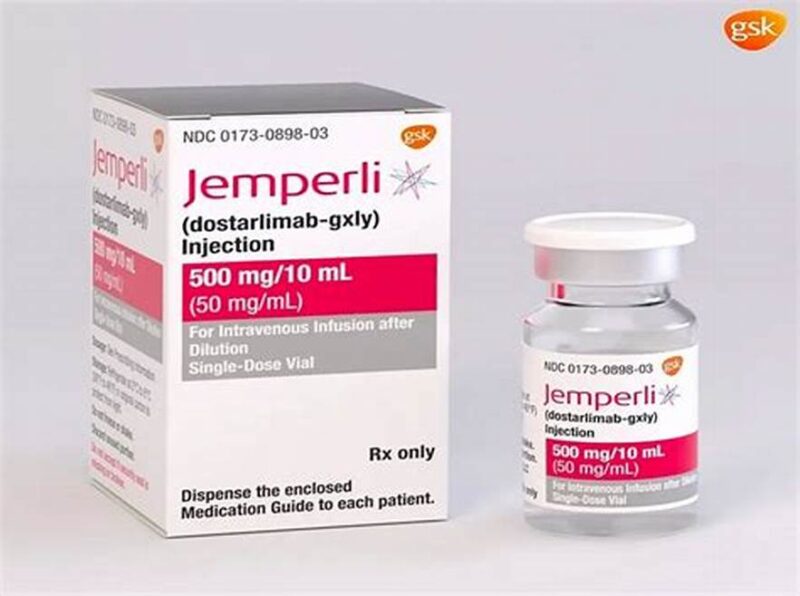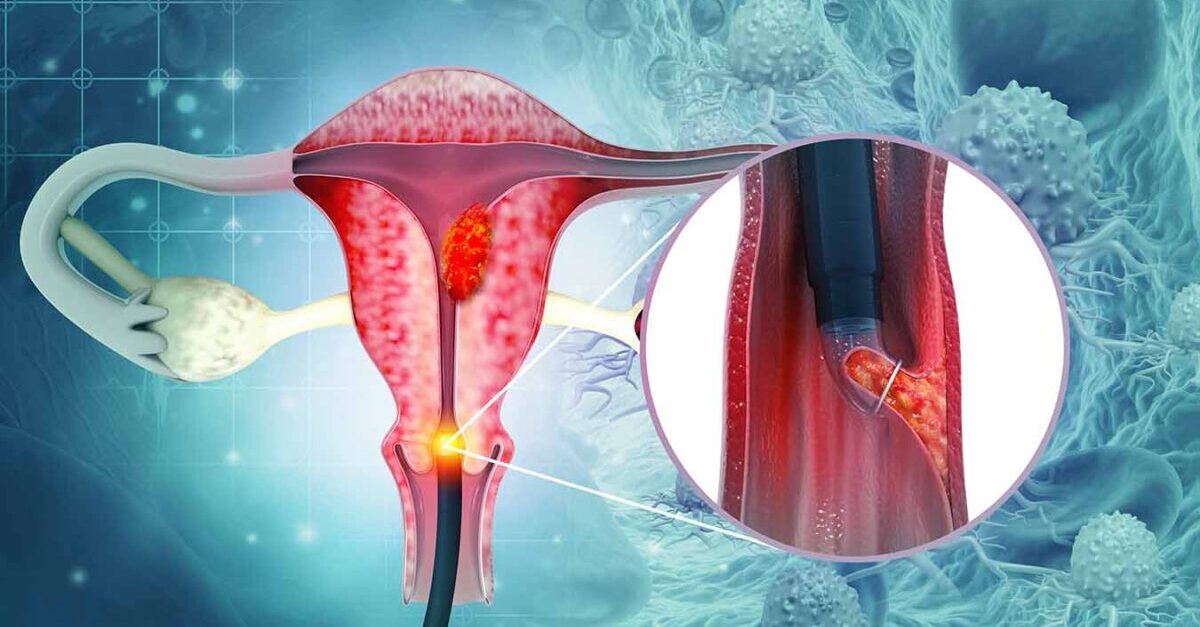The European Medicines Agency’s (EMA) Committee for Medicinal Products for Human Use (CHMP) has recommended the expanded approval of dostarlimab (Jemperli) in combination with carboplatin and paclitaxel for first-line treatment of adult patients with primary advanced or recurrent endometrial cancer who are candidates for systemic therapy.
This recommendation comes after the initial approval of dostarlimab for mismatch repair–deficient (dMMR)/microsatellite instability–high (MSI-H) patients in December 2023. The expanded approval, under consideration by the European Commission (EC), will include patients with mismatch repair–proficient (pMMR)/microsatellite stable (MSS) tumors, which represent approximately 70% to 75% of endometrial cancer cases.
The CHMP’s recommendation is based on positive data from part 1 of the phase 3 RUBY trial (NCT03981796), which demonstrated significant clinical benefits for patients treated with dostarlimab plus chemotherapy. The study showed that patients in the overall population who received dostarlimab had a median overall survival (OS) of 44.6 months, compared to 28.2 months for those treated with placebo plus chemotherapy. Furthermore, the 24-month OS rates were 70.1% and 54.3%, respectively. This data supports the inclusion of both dMMR/MSI-H and pMMR/MSS populations in the expanded indication.
Endometrial Cancer
Endometrial cancer is a type of cancer that originates in the endometrium, the lining of the uterus. The uterus, which is the hollow, pear-shaped organ located in the pelvis, is where fetal development occurs. Endometrial cancer is the most common cancer of the uterus, and it typically begins when abnormal cells in the endometrium grow uncontrollably. While uterine sarcoma is another rarer form of cancer that can occur in the uterus, it is far less common than endometrial cancer. Endometrial cancer is often referred to as uterine cancer, though technically, uterine cancer encompasses all cancers that originate in the uterus.

One of the key reasons endometrial cancer is often diagnosed early is due to its symptoms. The most common early warning sign is abnormal vaginal bleeding, especially after menopause. This symptom prompts many women to seek medical attention early, which can lead to early detection of the disease. Pelvic pain and bleeding between periods are other possible symptoms. If detected in its early stages, endometrial cancer can often be treated effectively with surgical removal of the uterus (hysterectomy), offering the possibility of a cure. However, if the cancer has spread beyond the uterus, additional treatments, such as radiation therapy or chemotherapy, may be required.
The exact cause of endometrial cancer is not completely understood, but it is known to occur when genetic mutations or changes in the DNA of the endometrial cells cause them to grow and divide uncontrollably. Normally, cells follow a natural life cycle where they grow, divide, and eventually die. In cancerous cells, the changes in DNA allow them to continue multiplying even when they should die, resulting in an accumulation of excess cells. These cells can form a mass or tumor, which may invade surrounding tissues. Over time, some of these cancerous cells can break away from the original tumor and spread to other parts of the body, making the cancer more difficult to treat.
While the exact cause of the DNA changes that lead to endometrial cancer remains unclear, certain risk factors are known to increase the likelihood of developing the disease. Obesity, hormone replacement therapy, early menstruation, late menopause, and a history of certain hormone-related conditions (like polycystic ovary syndrome or PCOS) are known risk factors. Additionally, having diabetes or a family history of cancer can increase the risk of developing endometrial cancer. As with all cancers, early detection through awareness of symptoms, regular health checkups, and prompt medical attention are critical in managing the disease effectively.
About Dostarlimab
Dostarlimab, sold under the brand name Jemperli, is a monoclonal antibody used as an anti-cancer medication primarily for the treatment of endometrial cancer. It is a programmed death receptor-1 (PD-1)-blocking monoclonal antibody, which works by inhibiting the PD-1 pathway. This pathway typically suppresses the immune response, allowing cancer cells to evade immune detection. By blocking PD-1, dostarlimab helps to restore the immune system’s ability to recognize and destroy cancer cells.

The drug was approved for the treatment of endometrial cancer in both the United States and the European Union in April 2021. In the U.S., dostarlimab gained accelerated approval based on the results of the Garnet trial, a clinical study that demonstrated its effectiveness in patients with mismatch repair-deficient (dMMR) or microsatellite instability-high (MSI-H) tumors. Dostarlimab was granted full approval by the FDA in February 2023 after further evidence confirmed its clinical benefits. This approval was extended for the treatment of advanced or recurrent endometrial cancer in patients with specific tumor profiles, such as dMMR/MSI-H.
While dostarlimab is effective, it does come with side effects. The most commonly reported side effects in the United States include fatigue, nausea, diarrhea, anemia, and constipation. In the European Union, additional side effects include vomiting, joint pain, itching, rash, fever, and hypothyroidism (low thyroid hormone levels). As with other PD-1 inhibitors, the drug can also cause immune-related adverse events, where the immune system attacks healthy tissues. Patients using dostarlimab are closely monitored for these potential reactions during treatment.
More About the Study
In August 2024, the U.S. Food and Drug Administration (FDA) approved dostarlimab-gxly in combination with carboplatin and paclitaxel for the treatment of adult patients with primary advanced or recurrent endometrial cancer. This approval was an expansion of the July 2023 FDA decision, which had initially approved dostarlimab plus chemotherapy for patients with mismatch repair-deficient (dMMR) or microsatellite instability-high (MSI-H) tumors. The August 2024 decision widened the indication to include patients with mismatch repair-proficient (pMMR) or microsatellite stable (MSS) tumors, covering a broader population, including approximately 70%-75% of endometrial cancer patients.
The approval was primarily based on findings from the RUBY trial, a randomized, double-blind, multicenter trial that enrolled patients with primary advanced FIGO stage III/IV or recurrent endometrial cancer. The study design involved patients receiving dostarlimab (500 mg) or a placebo combined with carboplatin and paclitaxel for the first 6 cycles. Afterward, patients received dostarlimab (1000 mg) or a placebo every 6 weeks for up to 3 years, or until disease progression or other factors led to treatment discontinuation. The primary endpoints included progression-free survival (PFS) in the dMMR/MSI-H and overall populations, and overall survival (OS) in the overall group. Additionally, OS in dMMR/MSI-H and pMMR/MSS populations was considered an exploratory endpoint.
The safety data from the RUBY trial indicated that the combination therapy of dostarlimab plus chemotherapy exhibited a safety profile consistent with the individual known side effects of dostarlimab, carboplatin, and paclitaxel. The expansion of the indication for dostarlimab to include a broader group of patients with pMMR/MSS tumors underscores its potential in improving outcomes in a previously underserved population, while maintaining a manageable safety profile.
Further Reading: Endometrioid Adenocarcinoma: What patients should know about.


